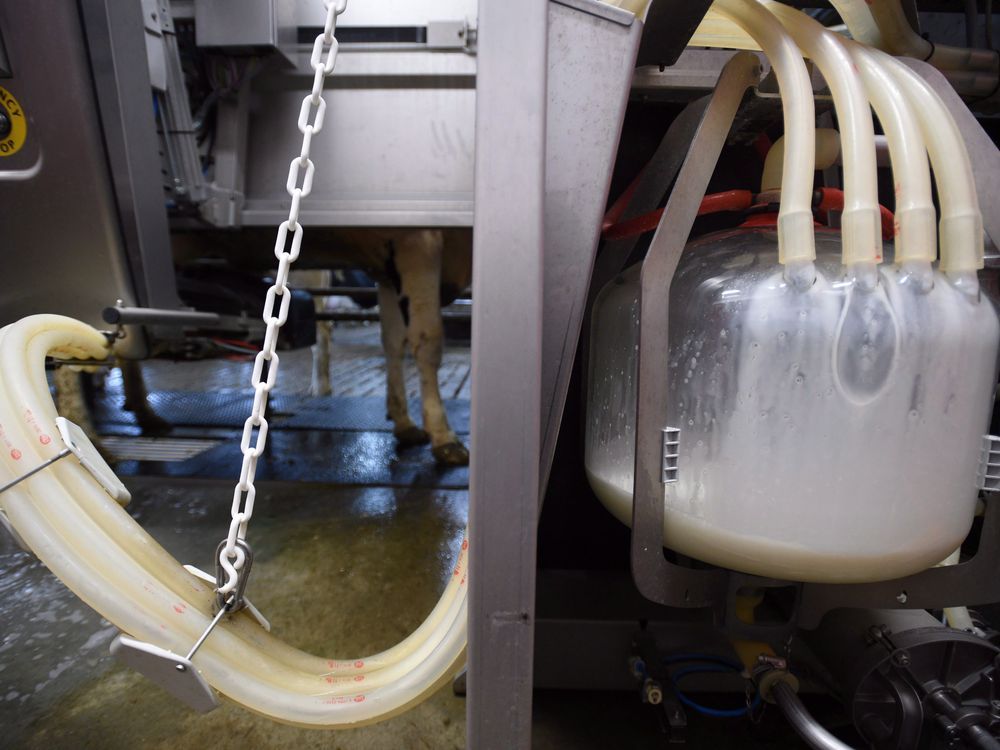With the proposed PFAS class listing under the Environmental Protection Act, and negotiations for a global plastics treaty upcoming in November, this is a critical window for action.
Published Oct 21, 2024 • Last updated 0 minutes ago • 4 minute read

We are witnessing the early stages of a public health emergency in Canada.
Per- and polyfluoroalkyl substances, a.k.a. “forever chemicals,” are ubiquitous in our daily lives — yet their severe, long-term health consequences could affect generations to come.
This situation demands immediate and decisive action. Yet even now, plastics and chemical companies are working hard to weaken upcoming federal regulations.
Advertisement 2
THIS CONTENT IS RESERVED FOR SUBSCRIBERS ONLY
Subscribe now to read the latest news in your city and across Canada.
- Unlimited online access to articles from across Canada with one account.
- Get exclusive access to the Vancouver Sun ePaper, an electronic replica of the print edition that you can share, download and comment on.
- Enjoy insights and behind-the-scenes analysis from our award-winning journalists.
- Support local journalists and the next generation of journalists.
- Daily puzzles including the New York Times Crossword.
SUBSCRIBE TO UNLOCK MORE ARTICLES
Subscribe now to read the latest news in your city and across Canada.
- Unlimited online access to articles from across Canada with one account.
- Get exclusive access to the Vancouver Sun ePaper, an electronic replica of the print edition that you can share, download and comment on.
- Enjoy insights and behind-the-scenes analysis from our award-winning journalists.
- Support local journalists and the next generation of journalists.
- Daily puzzles including the New York Times Crossword.
REGISTER / SIGN IN TO UNLOCK MORE ARTICLES
Create an account or sign in to continue with your reading experience.
- Access articles from across Canada with one account.
- Share your thoughts and join the conversation in the comments.
- Enjoy additional articles per month.
- Get email updates from your favourite authors.
THIS ARTICLE IS FREE TO READ REGISTER TO UNLOCK.
Create an account or sign in to continue with your reading experience.
- Access articles from across Canada with one account
- Share your thoughts and join the conversation in the comments
- Enjoy additional articles per month
- Get email updates from your favourite authors
Sign In or Create an Account
or
Article content
So, as physicians, we are sounding the alarm.
These chemicals, commonly called PFAS, can be found everywhere. They’re in our cookware, clothing, cosmetics, furniture, pesticides and food packaging. They accumulate in our water, soil and air.
As a result, PFAS are now detectable in the blood of 98.5 per cent of people in Canada.
The chemicals are linked to a growing list of serious health problems, including cancers, liver damage, cardiovascular disease, low infant birth weight, thyroid disease, immune system dysfunction, infertility, asthma and more. A recent study identified the first link between PFAS accumulation in the central nervous system and clinical and biological markers of Alzheimer’s disease.
Exposure and harm are highest among certain at-risk populations, making this an environmental justice issue. Babies, children and teenagers are at greatest risk from PFAS’ endocrine-disrupting properties, which can permanently alter their developing bodies and brains. Young children also absorb more contaminants per body weight.
Indigenous peoples in the North are exposed to especially high levels of PFAS. The chemicals bioaccumulate in the body tissues of living organisms, including the Arctic marine mammals that Inuit and Northern First Nations depend on for food.
By signing up you consent to receive the above newsletter from Postmedia Network Inc.
Article content
Advertisement 3
Article content
PFAS are also used in the process of “fracking” for gas, impacting the mostly Indigenous, racialized and rural communities nearby.
Why is PFAS so widespread, when there is an overwhelming scientific consensus about their dangers? The answer lies in an industry with too much influence on the government regulatory systems that should be protecting us.
Industry has known about the harms of PFAS for decades, but hid their data from regulators and the public. While plastics and chemical companies have been making billions in profits from PFAS, the world has been incurring trillions in health and cleanup costs. These costs are estimated at up to $9 billion for Canada alone.
We’re in a make-or-break moment to change all of this.
In 2021, the Canadian government finally committed to action on PFAS. The process is underway to list and regulate PFAS as a harmful class of chemicals under the updated Canadian Environmental Protection Act. Yet even now, plastics and chemical companies’ are lobbying to weaken these upcoming regulations.
After this pressure, the federal government’s updated draft excludes fluoropolymers. These are among the most widespread PFAS chemicals, used in many plastic products and found in recycled plastic content. They’re a significant and well-documented source of environmental contamination and greenhouse-gas emissions.
Advertisement 4
Article content
It’s not too late to change course and secure strong rules.
Earlier this month, the environment minister reiterated the importance of Canada’s commitment to phasing out PFAS “forever chemicals.”
We urge the federal government to take the necessary actions to protect the health of our patients, the public and the planet. This means restricting and phasing out the entire class of PFAS chemicals in products — including fluoropolymers.
We are also calling on the government to fast-track this process based on PFAS’ overwhelming evidence of harm and the fact that action is long overdue. We can’t afford further contamination of water sources, escalation of cleanup costs and increases in health-care expenses.
Finally, we need the government to shift from a proof-of-harm approach to the precautionary principle for all chemicals. Pharmaceuticals need to be proven safe before they enter the market — but we allow thousands of chemicals like PFAS to enter the market and only restrict them after the damage is done.
The time to act is now. With the proposed PFAS class listing under the Environmental Protection Act, and negotiations for a global plastics treaty upcoming in November, this is a critical window for action. As members of the public, we must use our power to overcome the chemical industry’s influence on policy and secure a safer, cleaner world for all.
Advertisement 5
Article content
Dr. Lyndia Dernis is an anesthetist in Montreal. Dr. Sharon Dodd is a family physician in B.C. Both are involved in the Canadian Association of Physicians for the Environment.
Recommended from Editorial
-

B.C. Election: Rustad says 'paper straws suck,' pledges to reverse ban
-

Opinion: An international plastic treaty must eliminate virgin plastic production to protect our oceans
Bookmark our website and support our journalism: Don’t miss the news you need to know — add VancouverSun.com and TheProvince.com to your bookmarks and sign up for our newsletters here.
You can also support our journalism by becoming a digital subscriber: For just $14 a month, you can get unlimited access to The Vancouver Sun, The Province, National Post and 13 other Canadian news sites. Support us by subscribing today: The Vancouver Sun | The Province.
Article content
.png)
 2 hours ago
14
2 hours ago
14




































 Bengali (BD) ·
Bengali (BD) ·  English (US) ·
English (US) ·